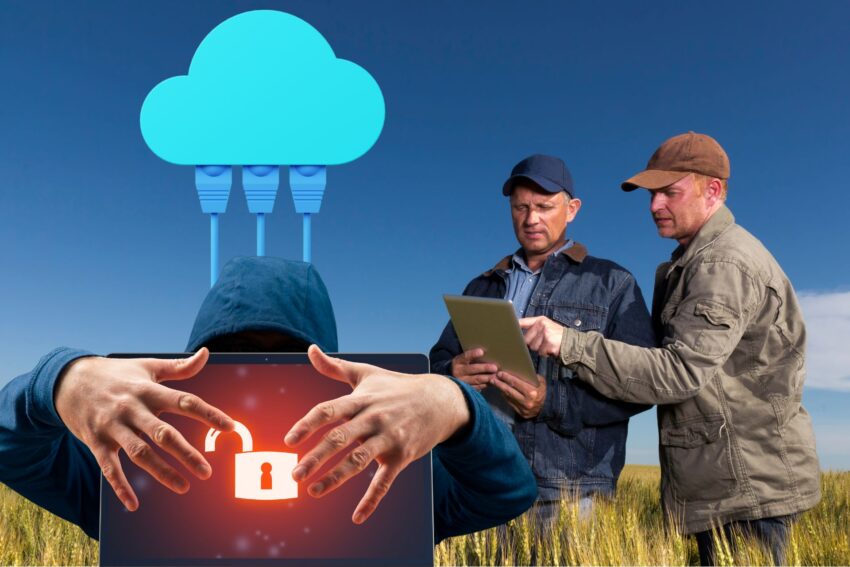In recent years, the agricultural sector has undergone a technological revolution, integrating smart equipment, AI, and drones into daily farming operations. While these advancements promise greater efficiency, productivity, and sustainability, they also introduce significant cybersecurity risks. Here’s why cybersecurity has become a hot topic in agriculture, the risks involved, and how farmers can safeguard their operations.
Modern farms are now equipped with Internet of Things (IoT) devices where tractors, irrigation systems, and livestock monitoring systems operate with sophisticated software that can be remotely accessed or updated. This connectivity is a double-edged sword; it allows for real-time data collection for optimal farming practices, but also opens up potential vulnerabilities.
Artificial Intelligence plays a significant role in modern agriculture, used for predictive analytics like forecasting weather impacts on crops or optimizing planting schedules. However, AI systems need to communicate with databases and cloud services, increasing the risk of data breaches where proprietary farming data could be stolen or corrupted.
Drones, particularly those manufactured in China, have become widely used for tasks like crop spraying, soil and field analysis, or monitoring livestock. There’s growing concern about these devices possibly collecting data that could be accessed by foreign entities, potentially for economic espionage or strategic leverage.
The risks posed by technology in agriculture are multifaceted. Data security is a primary concern where agricultural data, including yield maps, soil data, and operational details, are at risk. Unauthorized access could lead to theft of intellectual property or enable competitors to gain insights into a farm’s operations. Operational disruptions are another risk; malware could disable machinery at critical times, leading to significant downtime or even damage to crops or equipment. Privacy concerns also arise when personal data of farm owners or workers could be compromised, leading to identity theft or privacy invasion. Furthermore, there’s the threat of economic espionage, where foreign entities might use tech vulnerabilities to gain insights into food production capabilities, which are crucial for national security.
To combat these threats, farmers need to adopt both basic and advanced cybersecurity practices. Password management is crucial; using strong, unique passwords for each device and changing them regularly is a good start. Regular updates to all software and firmware protect against known vulnerabilities. Network security should be enhanced by using firewalls, securing Wi-Fi networks, and considering setting up a separate network for IoT devices to segregate them from more critical systems.
On a more advanced level, encryption ensures that data transmitted between devices is secure, particularly if it travels over the internet. Access control, through multi-factor authentication, should be implemented for accessing sensitive systems or data. Cybersecurity training for all farm staff about basic cyber hygiene, recognizing phishing emails, and the importance of reporting suspicious activities is also vital.
When it comes to technology vendors, particularly those from countries like China, due diligence is key. Investigate their cybersecurity policies and data usage agreements, looking for transparency in data handling and control.
Physical security also plays a role; ensuring controlled physical access to machinery and control centers prevents unauthorized tampering or data access.
An incident response plan is essential for what to do if there’s a breach, including whom to contact, how to mitigate damage, and steps for recovery. This plan should be regularly updated and practiced.
Lastly, collaboration and community engagement with local or national agricultural bodies or cybersecurity groups can enhance collective intelligence, making it a powerful tool in addressing cybersecurity threats.
In conclusion, as agriculture becomes more reliant on digital technologies, robust cybersecurity measures are not just good practice—they’re essential for the future of farming. By understanding these risks and implementing these solutions, farmers can protect their operations, their data, and ultimately, their livelihoods. In an age where data is as valuable as the harvest, securing it is paramount.


